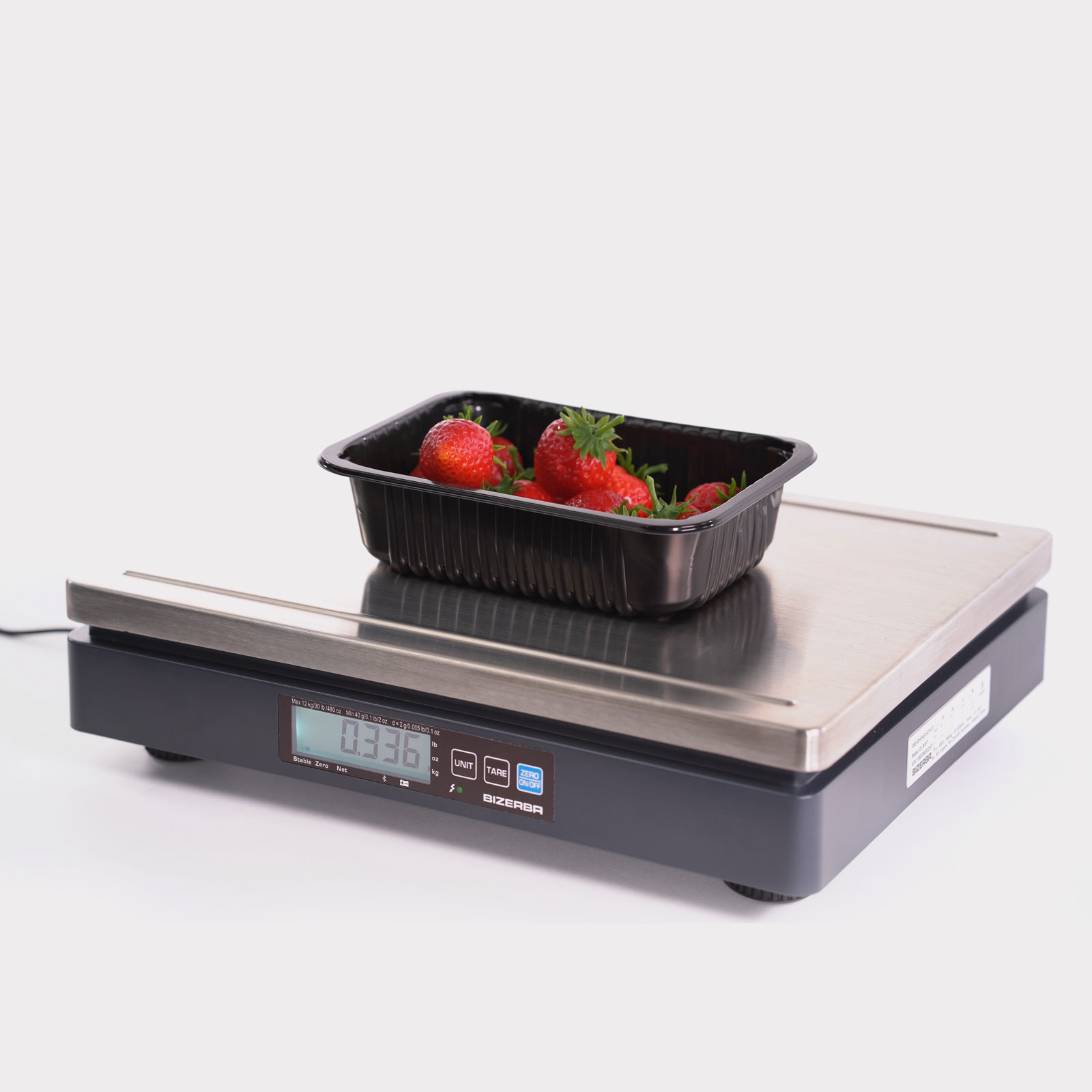The Importance of Basic Retail Scales in Stores
For any store handling fresh produce, deli items, or bulk goods, an accurate and reliable weighing system is a must. A basic retail scale enables store owners and staff to weigh items quickly and provide customers with exact pricing based on weight. This accuracy not only boosts operational efficiency but also fosters customer trust by ensuring they are charged correctly.
Key Features of Basic Retail Scales
Precision and Accuracy: The primary function of a retail scale is to offer precise measurements. Whether you’re weighing deli meats, fresh produce, or pre-packaged goods, these scales ensure that every transaction is exact. This precision is especially important in food-related retail businesses where weight discrepancies can lead to lost revenue or customer dissatisfaction.
Price Computing: Most modern basic retail scales include a price computing feature that calculates the cost of an item based on its weight and the price per unit. This function is crucial in grocery stores and markets, where products like fruits, vegetables, and deli meats are sold by weight.
Durable Construction: Basic retail scales, such as those offered by industry leaders, are typically built with high-quality materials like stainless steel. This ensures the scale is durable enough to withstand heavy use in retail environments. Stainless steel also makes the scale easy to clean, maintaining hygiene standards, especially in food-related retail settings.
Legal for Trade Certification: In retail environments where goods are sold by weight, it’s essential that scales are legal for trade. This certification ensures that the scale complies with regional and international standards, protecting both the business and customers from potential disputes over weight and pricing accuracy.
Applications of Basic Retail Scales in Different Environments
Grocery Stores: In grocery stores, where products like fruits, vegetables, and deli meats are sold by weight, basic retail scales play a pivotal role. With their accurate weighing and price computing capabilities, they help streamline the checkout process, ensuring that customers pay the correct amount for their purchases.
Butcheries and Delis: For butcheries and delis, a basic retail scale is indispensable for weighing meats, cheeses, and other deli products. These scales are designed to handle frequent use while providing precise measurements for different products. They also allow for adjustable slice thickness, helping businesses cater to specific customer requests.
Markets and Farmers’ Markets: In outdoor markets and farmers' markets, portability and ease of use are essential features. Basic retail scales are often lightweight yet durable, allowing vendors to weigh produce accurately, calculate prices, and handle customer transactions efficiently. A hanging scale can also be used for larger or bulkier items, offering flexibility in weighing options.
Bakery and Pastry Shops: Bakery and pastry shops rely on basic retail scales to portion dough, weigh baked goods, and ensure that customers receive the right quantity of each product. The ability to integrate these scales into POS systems allows for smoother transactions and improved customer service.
Advantages of Basic Retail Scales
Improved Efficiency: By integrating real-time weighing and price computing, these scales help reduce the time spent on manual calculations, allowing staff to focus on customer service and other operational tasks.
Enhanced Customer Experience: With features like clear displays and fast, accurate weighing, these scales help improve the overall shopping experience. Customers appreciate the transparency and speed provided by reliable, high-quality retail scales.
Hygiene and Durability: Built with stainless steel for easy cleaning, basic retail scales are designed to meet the stringent hygiene requirements of food-related businesses. This ensures the scale stays in top condition, even in high-traffic environments like grocery stores and butcheries.
Customization Options: Many basic retail scales offer customizable settings, including the ability to store product prices or adjust display formats. This flexibility allows businesses to tailor the scale’s functionality to their specific needs.
Why Invest in a Basic Retail Scale?
For any retail business that sells products by weight, investing in a high-quality basic retail scale is essential. Not only does it ensure compliance with legal standards, but it also helps improve operational efficiency and customer satisfaction. By providing accurate measurements, durable construction, and seamless POS integration, a basic retail scale is a valuable asset for stores looking to streamline their weighing and pricing processes.
